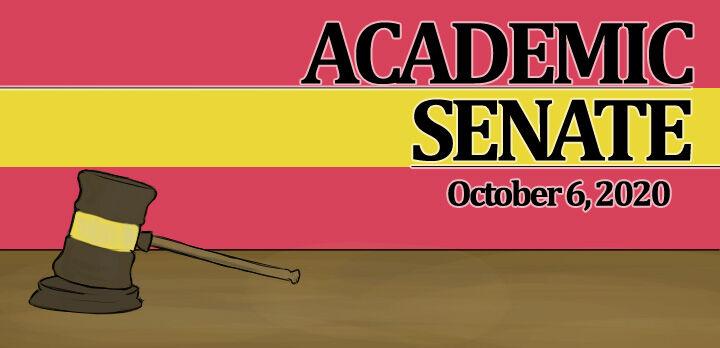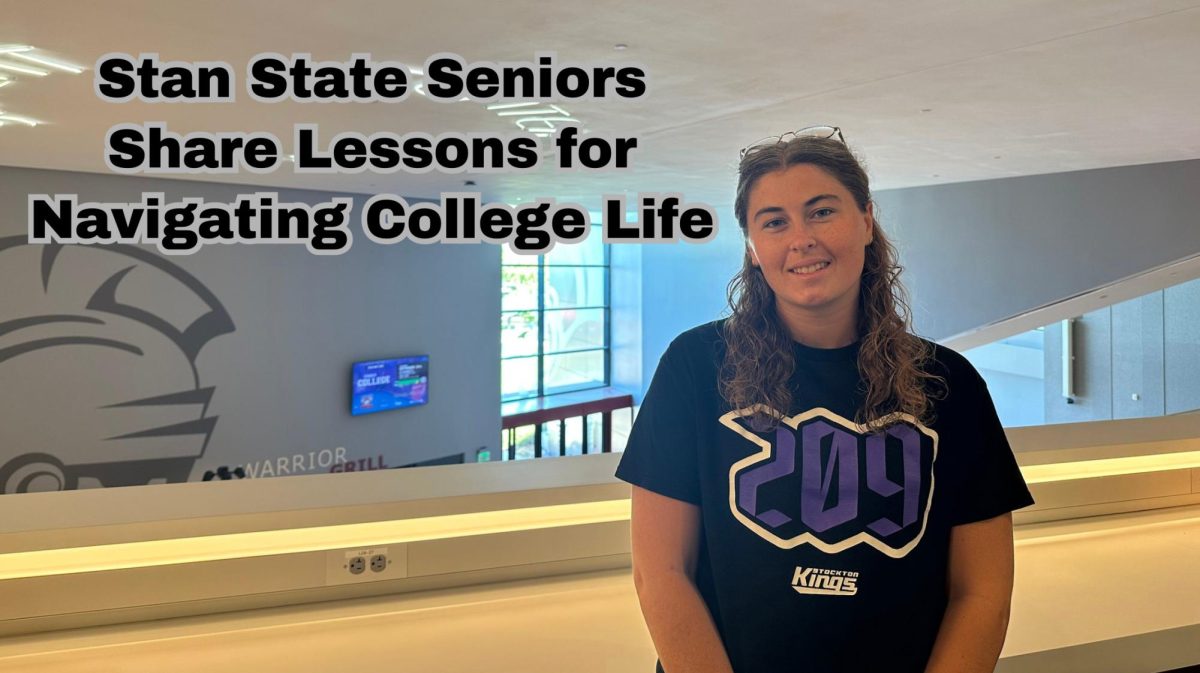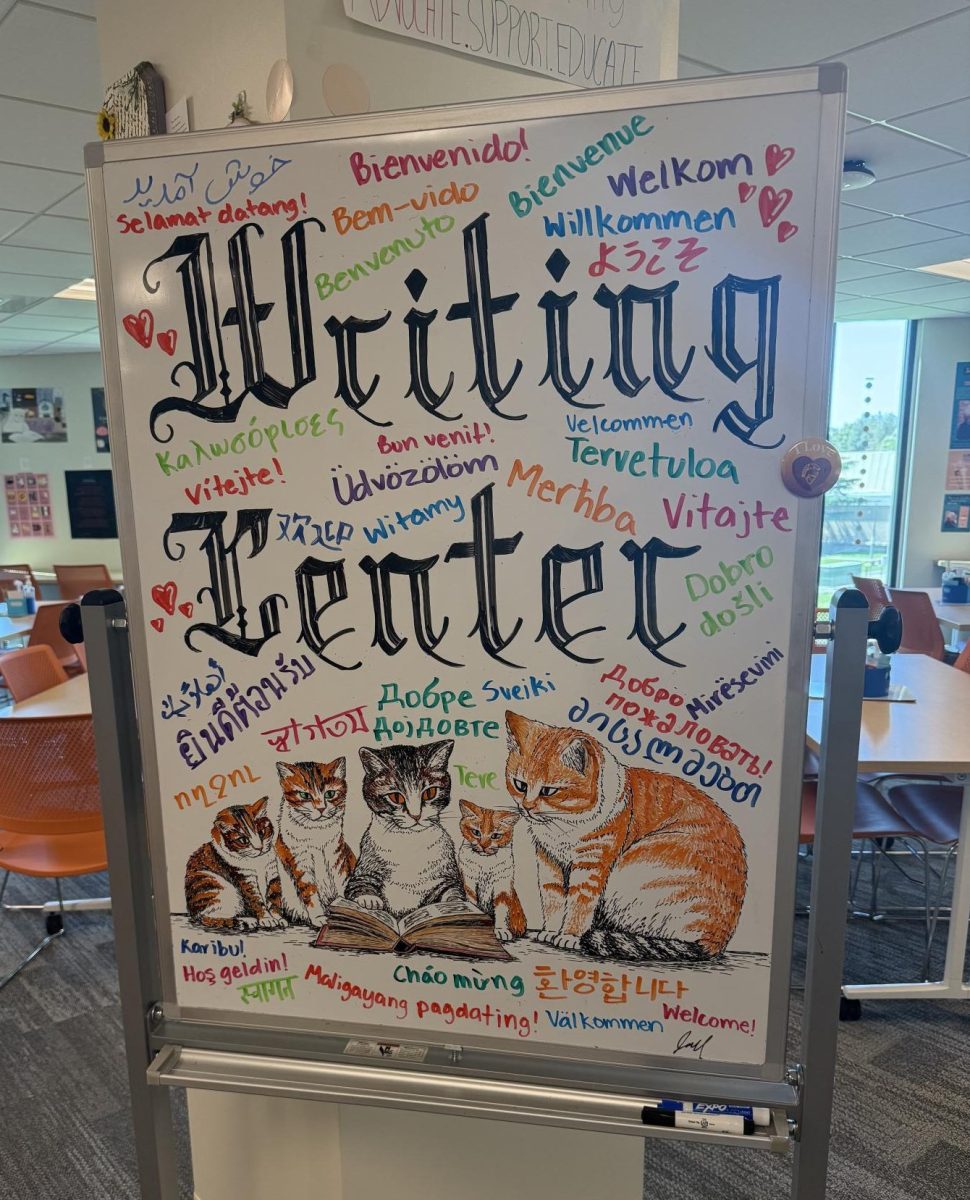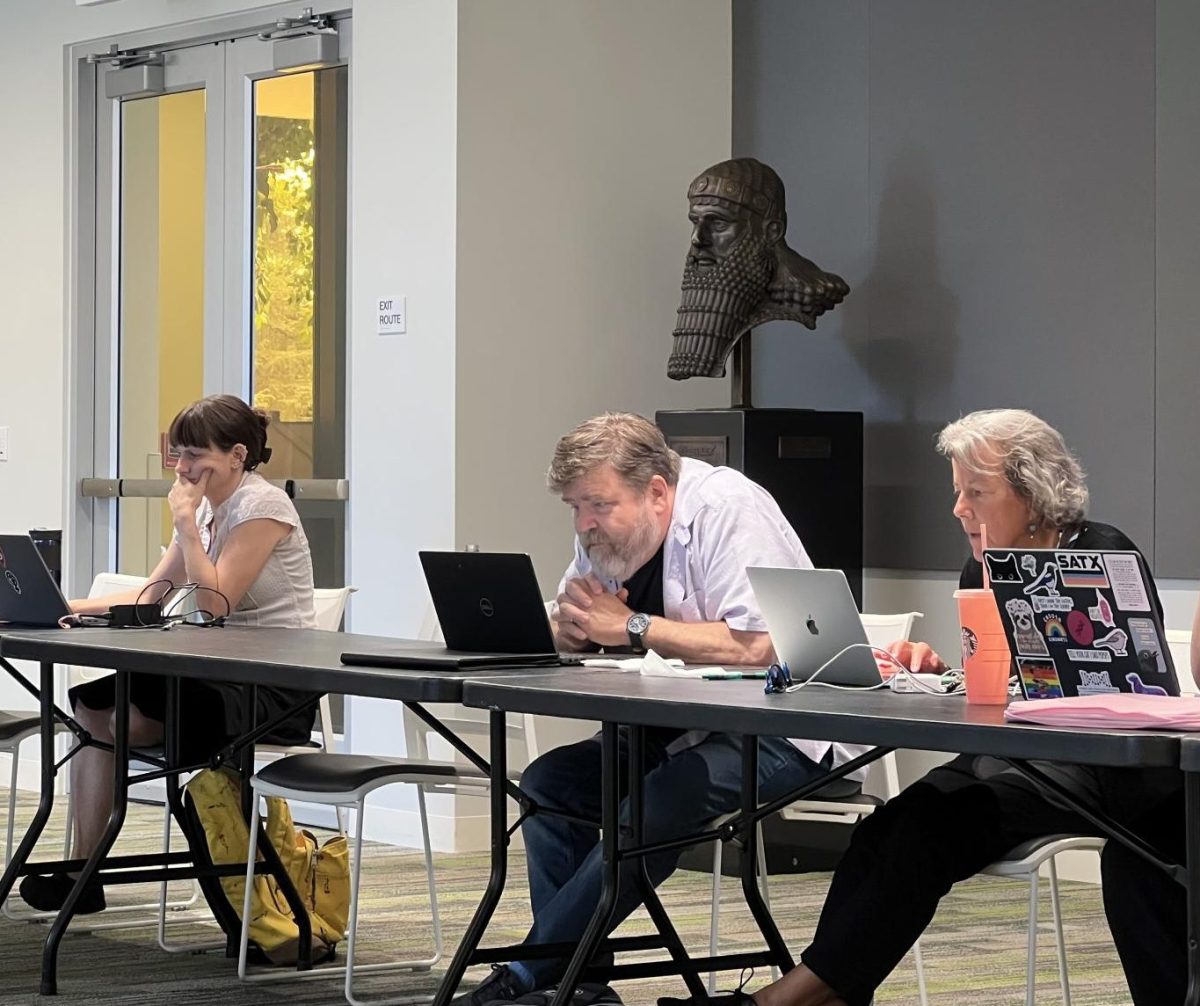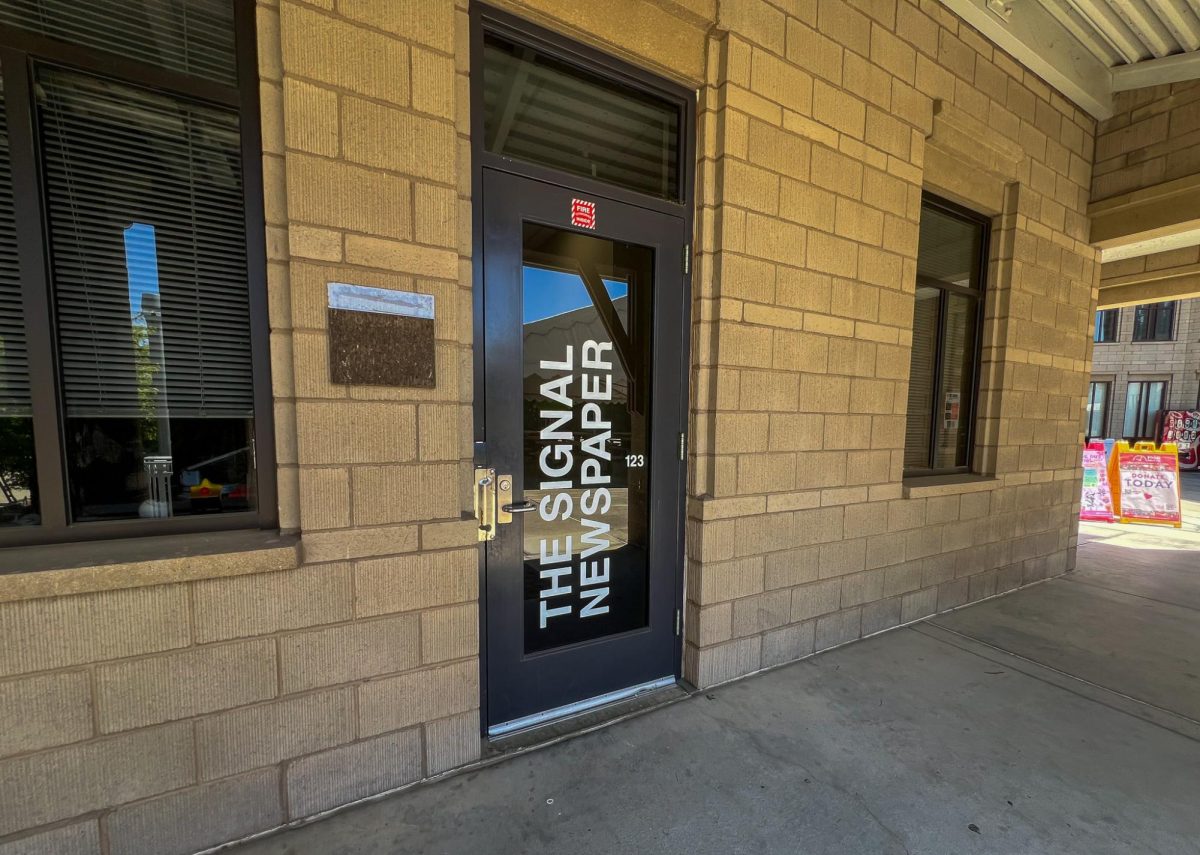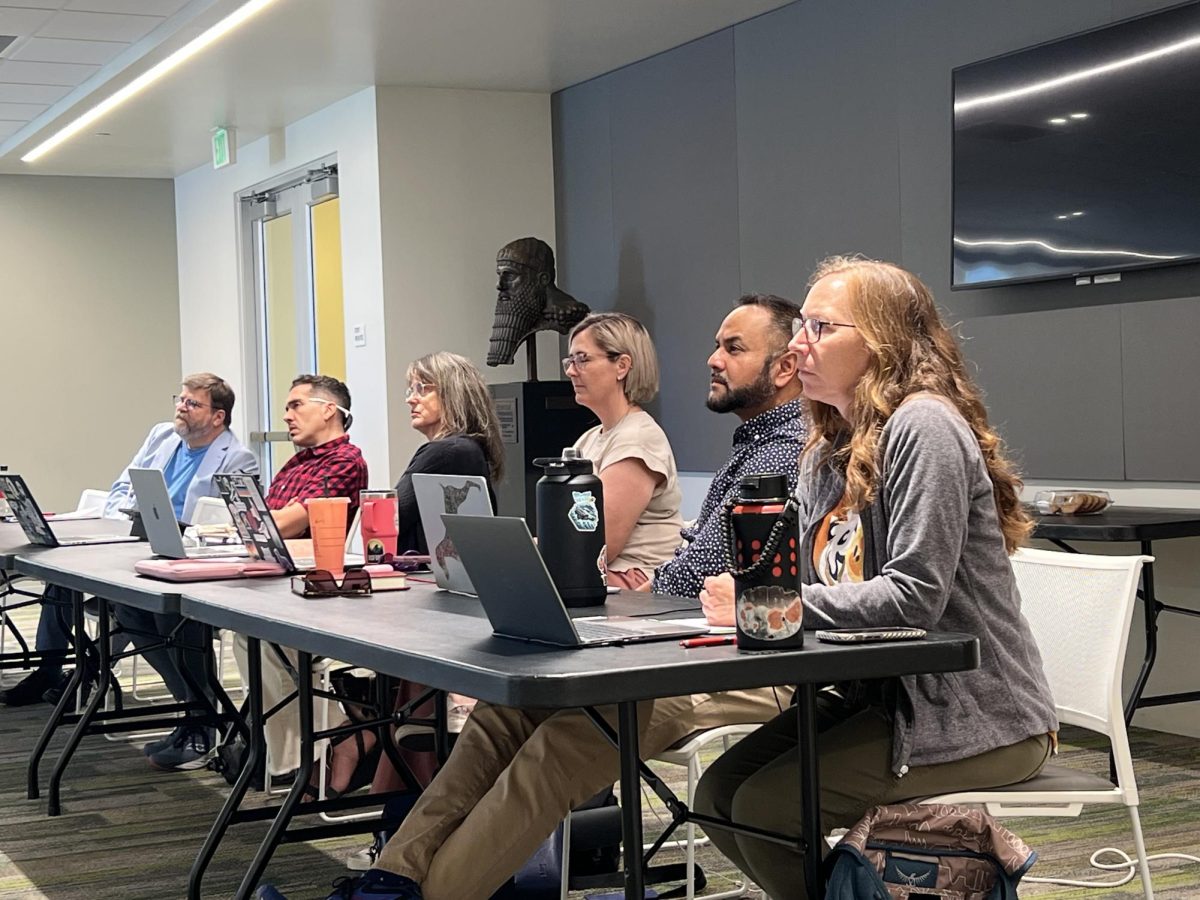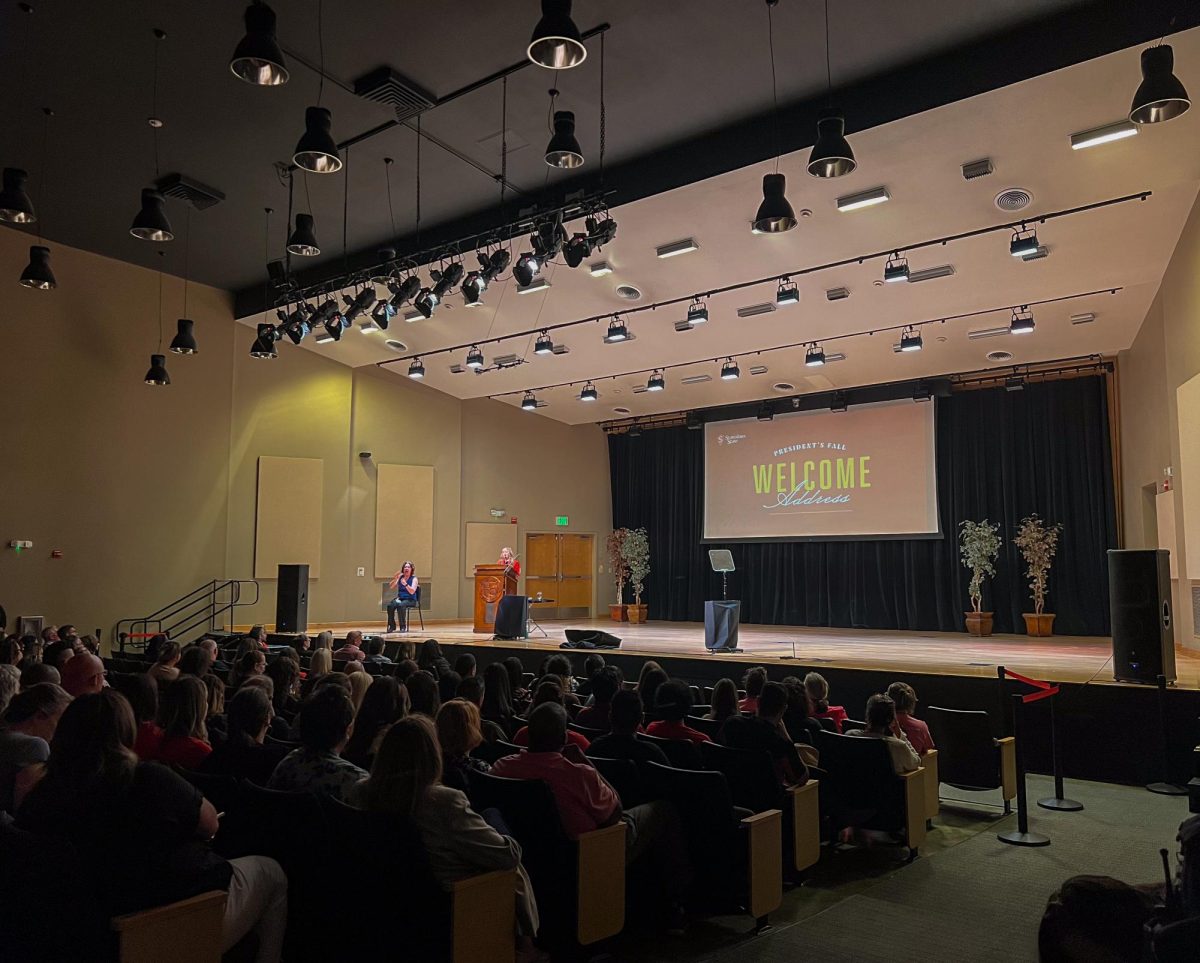On Tuesday, October 6, the Stan State Academic Senate had its third meeting of the semester, and a prevalent theme during this meeting was that of adapting to the new technologically-dependent world Stan State is operating in. Topics included Zoom equity, course credit, Ethnic Studies requirements, faculty evaluations, and hotspot shortages.
Zoom “Techquity”
A topic of much debate and importance was that of this idea of Zoom “techquity,” so coined by the resolution presented by the campus’s Academic Technology and Learning Committee (ATLC). This discussion centered around the idea of whether it’s fair for professors to be so insistent that students turn on their videos during lectures. It has been reported that many professors have deducted, or threatened to deduct, class points if students refuse to turn their camera’s on.
One of the factors relating to this issue is that of variation in each student’s individual learning environment. Aspects such as internet strength, members of the household, student responsibilities outside of the university, and suitable learning environment availability were cited as conditions that should be taken into consideration so as to not unjustly affect the student’s performance in a class.
Academic freedom, both for students and professors, was taken into consideration. As stated on the American Federation for Teacher’s site, academic freedom grants professors domain in terms of: “(1) the college curriculum; (2) course content; (3) teaching; (4) student evaluation; and (5) the conduct of scholarly inquiry.”
For students, academic freedom comes down to what’s best for them. Found on the Association for American University Professor’s website, a student’s freedom to learn “[depends] upon appropriate opportunities and conditions in the classroom, on the campus, and in the larger community.”
This topic, like the others discussed during this meeting, was ultimately addressed with a spirit of understanding and empathy. Provost Kimberly Greer explained that, in light of recent events, all things are being considered “with the students in mind.”
A New Standard for the CR/NC System: Under Consideration
With the continuation of COVID-19 related difficulties impairing students’ abilities to perform in their courses, the Academic Senate discussed whether or not they should continue with last semester’s flexible grading options in order to alleviate pressure on struggling students.
In a similar fashion to last semester’s grading adjustments, students would be given the option to opt for the credit/ no credit grading option. As usual, students who select CR/NC would either be given credit for the completion of their course if they earn an A, B, or C grade (including -C) or they would not be given credit if they receive a grade that is anything lower than a -C.
Opting for the CR/NC option means that whatever the outcome is, your GPA would not be affected. This makes a major difference for students who have been inundated with COVID-19 related complications and have suffered academically as a result. If for whatever reason students determine that their decision to opt for the CR/NC has caused harm, instructors would be able to to change the grading option back to the standard letter-grade option.
The CR/NC option would include courses marked as letter grade only and would be available for general education courses and major courses. In addition, there would be no restrictions against repeating CR/NC courses.
Before the pandemic, the credit/no credit policy stated that “no more than 24 Stanislaus State CR semester units” go towards your degree. However, the Academic Senate will decide whether or not they waive this restriction for any credits earned during the fall 2020 semester.
The option to opt for CR/NC would be available up until 14 calendar days before the first day of fall and spring finals week.
This resolution will be voted on during the next Academic Senate meeting.
Progress for the New Ethnic Studies Requirement
A work in progress at Stan State, the Academic Senate discussed the implementation of the new system wide Ethnic Studies requirement mandated by the law AB-1460.
“… The SWAS passed a resolution forwarding the student learning objectives to the Chancellor’s office,” Dr. Steven Wood shared. He also made sure to bring up the disagreement surrounding those student learning objectives and whether or not the CSU council of Ethnic Studies actually had a part in the creation and approval of them.
Later on in the meeting when discussing a resolution for this campus, one which agreed to adhere to the current policies in place for curriculum changes and the timeline provided by the law, it was also made clear that specific courses wouldn’t be given the green light without the council’s approval of the SLO’s.
“A really significant reason [for this] resolution is because with the CSU Ethnic Studies Council… there would be far greater flexibility with making this a lower and upper division requirement,” shared Dr. Mary Roaf. “On each campus we really would really be able to tailor the implementation in a way that best meets our needs.”
Roaf also reminded the Senate of the unnecessary speed at which this process is being started, even when compared to the timeline laid out in the law.
Non-Tenure Evaluations
On August 20th, the University Retention, Promotion & Tenure (RPT) committee issued a joint statement urging department and university reviewers to consider the detrimental impacts that tenure-track faculty have experienced due to the pandemic, when completing their evaluations.
However, this statement did not address the similarly detrimental impact that covid-19 has placed on non-tenure track faculty who also must be evaluated by department and university reviewers. The Academic Senate passed a resolution calling on reviewers to recognize that non-tenure track are also burdened by the disturbances of the COVID-19 pandemic and that they should consider that when evaluating non-tenure track faculty.
As FAC Chair Dr. Steven Wood said, the point of this resolution is to “take the spirit and some of the substance of the [RPT Joint Statement] and attached resolutions and apply it to non-tenure track faculty.”
The COVID-19 pandemic has affected all facets of academic life for all members of the campus community. Representatives participating in Tuesday’s meeting sought to alleviate some of the burdens placed on faculty members who face evaluations. The goal, as Statewide Academic Senate Senator Ann Strahm stated, is to “ensure that all of our faculty members, regardless of their tenure status, are [assured] that they are not harmed in the middle of this pandemic.” This resolution calls on faculty evaluators to implement the considerations that the Academic Senate representatives believe are important in the context of the COVID-19 pandemic.
Hotspot Shortage
ATLC chair Dr. Tom Carter spoke on the demand for mobile hotspots and the cost issue tied to them. Not wanting to “increase the digital divide,” he mentioned that new avenues are being explored so that the university can still provide this service to students and faculty alike without running an obscene bill.
According to Rafael Espinosa, chief information officer of OIT, 750 hotspots have been distributed to those who needed them and, as of right now, another 200 are being prepared for use. These new hotspots will address around half of the 450 total unmet requests for this tool.
The next Academic Senate meeting is scheduled for Tuesday, October 20.
Correction: A previous version had incorrectly stated that the Credit/ No Credit resolution had been passed by Academic Senate during the October 5th, meeting. This resolution was only discussed and not voted on. The vote will take place in the next meeting.

